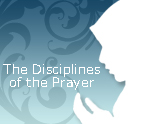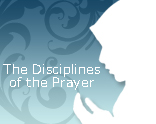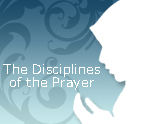One of the important cordial disciplines, which many other disciplines may be
its preliminaries, and worship without it would be lifeless, and it is the key
to the lock of perfections and the door of the doors of blisses, and the noble
hadiths seldom attach so much importance to a discipline other than that, is the
"presence of heart". Although we have sufficiently explained this topic,
together with its ranks and degrees in the thesis The Secret of the Salat1
and in Forty hadiths,2 nevertheless, we shall allude to it once
again, to complete the benefit, and to avoid reference.
It has already been explained that worships, ceremonies, invocations and
benedictions can have their results only when they become the inner image of the
heart, and the interior of the essence of man is mixed with them, and his heart
takes the form of servitude, renouncing disobedience and obstinacy. It has also
been noted that one of the secrets and advantages of worship is that one's will
gets stronger, the soul overcomes (one's) nature, the forces of the nature
become subjugated to the soul's power and sovereignty and the will of the
invisible soul overrules the visible body, such that the forces turn like the
angels with regard to Allah, the Exalted, i.e. "... they do not disobey Allah in
what He commands them, and do as they are commanded."3
Now we add that one of the important secrets and advantages of worship, to which
everything is a preliminary, is that the entire inside and outside kingdom
becomes subjugated to Allah's will and moves at Allah's command, and the soul's
visible and invisible forces become of Allah's soldiers, and all of them get the
post of being Allah's angels. This is regarded as one of the low degrees of the
annihilation of the forces and wills in Allah's will. Then, gradually, big
consequences appear, the physical man becomes divine, and the soul practices
servitude to Allah. The soldiers of Iblis will totally be defeated and
abolished, and the heart and its powers surrender to Allah, and in it appear
some inner stages of Islam. The result of this submitting of the will to Allah
in the Hereafter will be that Allah, the Exalted, will enforce (make effective)
the will of such a servant in the invisible worlds and make him His "sublime
similitude" [mathali a'la]. And, like His Sacred Self when at His mere Will
everything He wants is created, He makes this servant's will like His; as some
of the people of knowledge, quoting the Messenger of Allah (SA), concerning the
people of Paradise, say that an angel comes to them, and, after asking
permission from them, he enters and after conveying Allah's greeting to them he
delivers a letter from Allah, the Exalted. The letter says to whomsoever it is
addressed: "From the Everliving, the Everlasting, Who never dies, to the
everliving, the everlasting, who never dies. Now then, I tell a thing: Be! and
it is. I made you tell a thing: Be! and it is." The Messenger of Allah (SA)
said: "Hence, no one of the people of Paradise says to something: 'Be!'
unless it will be".4 This is the divine sovereignty bestowed upon
the servant, because of his forsaking his own will and his desires' sovereignty,
and because of his disobeying Iblis and his soldiers. None of the said results
may take place except with the complete "presence of heart". If the heart was
negligent and forgetful during the salat, his worship would not be real, but
more like a play and sporting. Such a worship, as a matter of fact, will have no
effect whatsoever on the soul, and the worship will never sublime from its outer
form to the inside and the invisible world [malakut]. This fact is referred to
by many narratives. The powers of the soul would not surrender, through such
worship, to the soul itself, nor can the sovereignty of the soul be seen on
them. Similarly, the outward and inward powers will not surrender to Allah's
will , and the kingdom will not be subdued to Allah's Majesty, as is quite
clear. That is why you can see no effect from forty or fifty years of worship on
us. On the contrary, the darkness of the heart and the obstinacy of the powers
increase day after day, since our longing for nature, our obedience to our
desires and to the Satanic whispers, increase, too. These mean nothing but that
our worships are empty and their interior and exterior disciplines are not
observed. Otherwise, the Qur'anic text denotes that:
﴾... the salat forbids lewdness and vice.﴿5
Naturally, this forbidding is not something superficial. A torch should be
lighted in the heart, and a light must shine in one's interior so as to guide
him to the invisible world, and there appears a divine preventer which prevents
man from disobedience.
We do regard ourselves among the musallin, and we have been engaged in this
great worship for decades, without seeing such a light, nor discerning such a
preventer in our interior. So woe to us on the day when the images of our deeds
and the list of our acts are handed to us in that world and we are told to check
our own accounts.6 See if such deeds can be accepted by His Majesty,
and whether such a salat, in such a deformed and darkened form, can bring one
nearer to His Presence. Is it right to treat this great divine trust and the
advice of the prophets and wasis (executors of the prophets' wills) in such a
way, and to let the treacherous hand of the cursed Satan, the enemy of Allah,
meddle in it? The salat, which is the mi'raj of the believer and the means of
proximity of the pious,7 why should it keep you away from the sacred
proximity to the divine Presence? What would be our share on that day except
regret, remorse, helplessness, wretchedness, shame and disgrace? -a regret and a
remorse which have no equal in this world, and a shame and disgrace which cannot
be imagined. This world's regrets, are, at any rate, mixed with a thousand kinds
of hope, and the shamelessness here is transitory, while there is nothing there
except regret and remorse day after day. Allah, the Exalted, says:
﴾And warn them of the day of regret, when the matter shall have been
decided.﴿8
What has passed cannot be returned and the life which has been wasted cannot be
restored.
﴾Owoe to me! for what I fell short of my duty to Allah ...﴿9
My dear, this day is the day of a grace period for actions. The prophets came
and brought Books, and they proclaimed their calls, with a lot of celebrities,
enduring pains and hardships, in order to wake us up from the sleep of
negligence and to sober us from the nature's intoxication, and to take us to the
world of light and the source of joy and pleasure, and to introduce us to the
eternal life, the everlasting bliss and the unlimited delights, and to deliver
us from annihilation, misery, fire, darkness, regret and remorse. All these are
for our own benefit, without there being any profit for them, as those sacred
personalities are in no need of our faith and deeds. Despite all that, they had
not the least effect on us, as Satan was so firmly closing the ears of our
heart, and exerted so a strong control over our inside and outside that none of
their admonitions could ever have an effect on us, nor could any of the ayahs
and hadiths pierce the ears of our hearts, going to no farther than our outer
animal ears.
In short, O respected reader who read these papers, do not be, like the writer,
void of all lights, and empty-handed of all good deeds, entangled in the sensual
desires. Have mercy on yourself, and get a fruit from your life. Carefully look
into the lives of the prophets and the perfect godly men [awliya], and cast away
the false desires and Satan's promises. Do not be deceived by Satan's fraud, nor
by the deceptions of the commanding soul, as their trickery is very clever, and
they are able to dress every wrong as right in the eyes of man in order to
deceive him. Sometimes they fool man by making him think that he will repent at
the end of his life, and thus, drag him into wretchedness, despite the fact that
repenting at the end of life, after the accumulation of the darkness of sins,
and the numerous acts of injustice against the people and against Allah's right,
is a very difficult task. Now, when man is still strong and in the prime of
life, and the tree of sin is still frail and the influence of Satan has not yet
become widespread in the soul, and the soul is still new to the invisible world
and very near the God-given disposition, and the conditions for an acceptable
repentance are easy, they do not let man repent and uproot this frail tree and
overthrow the dependent kingdom. They suggest old age, when, on the contrary,
the will is weak, the powers have given way, the trees of different sins are
strong and deep rooted, the kingdom of Iblis, inwardly and outwardly, is
independent and firm, the familiarity with nature is strong, the distance from
the invisible world is great, the light of innate disposition is extinguished,
and the situation for repentance is difficult and bitter. This is nothing but
delusion.
In another instance the promise of the intercession of the intercessors (AS)
drives man out of their sacred realm and deprives him of their intercession,
because indulgence in disobedience gradually darkens and upsets the heart and
drags man to a bad end. Satan's aim is to rob man's faith, and he makes
committing sins a preliminary step to that aim so as to attain to it. If a man
covetously thinks of intercession, he must try hard in this world to keep his
connection with his intercessors, and think of the status of those who will
intercede on the Day of Resurrection to see how their state of worship and
devotion was. Suppose that you died a faithful man, but if the load of the sins
and injustices was heavy, it is possible that concerning the different pains and
tortures in the barzakh there would be no intercession for you, as Imam al-Sadiq
was quoted to have said: "Your barzakh is with yourselves".10
The tortures of the barzakh cannot be compared with the tortures of this world,
and the length of the period of the barzakh is unknown except to Allah. It will
probably last for millions and millions of years. It is possible that, in the
Hereafter and after long periods of diverse and unbearable kinds of torture, we
get the intercession, as it is also related in the hadiths.11
Thus, the Satanic deception stops man from good deeds, and causes him to leave
this world either faithless or loaded with heavy burdens, afflicting him with
wretchedness and misfortune. In some instances, Satan, by giving man hope in the
vast mercy of the Most Merciful, cuts his hand off the skirt of mercy, while he
is careless of the fact that raising up so many prophets, revealing the Books,
descending the angels, and the revelations and inspirations to the prophets, and
their showing the right path, are all of the mercy of the Most Merciful. The
whole world is enveloped in the vast mercy of Allah, while we, at the fringe of
the spring of life, die of thirst.
The greatest of the divine mercies is the Qur'an. If you are looking greedily
for the mercy of the Most Merciful, hoping for His vast mercy, do benefit from
the Qur'an, the vast mercy. It has opened to you the way to happiness, and has
distinguished for you the pit from the paved road. But you fall over into the
pit by yourself, because you deviate from the right path. So, what has mercy to
do with that? Had it been possible to show the road of good and happiness to the
people in a different way ,it would have been done, according to the vastness of
the mercy. Had it been possible to force the people into happiness, it would
have been done. But alas! How far it is! The road to the Hereafter is a road
which cannot be trodden except at one's free will. Happiness cannot be attained
forcibly. Piety and righteous deeds are not so if not done voluntarily. This is
probably the very meaning of the noble ayah:
﴾There is no compulsion in religion (2:256)﴿.
Yes, what can be made compulsory and forcible is the appearance of the divine
religion, not its reality. The prophets (AS) were enjoined to impose the
appearance, in any possible way, on the people, so that the appearance of the
world might become the appearance of the divine justice, and to guide the people
to the interior, so that they themselves might march on their own feet towards
happiness.
In short, this is also a Satanic delusion which cuts, by coveting mercy, man's
hand short from mercy.
* Book: Adabus Salat "The Disciplines of the Prayer". By: Imam
Khomeini.
1- Refer to footnote
No.6.
2- Forty hadiths is one of Imam Khomeini's works, which he finished in the month
of Muharram, 1358 H. In its preface, after praising, blessing and invocation, he
says: " ... I, a poor and weak servant, have, for sometime, been thinking to
collect forty hadiths of the hadiths of the infallible and pure Ahlul Bayt (AS)
out of the reliable books of the Companions and Ulama (may Allah be pleased with
them), and to explain each in a way suitable for the common people. I, thus,
wrote it in Persian so that the Persian-speaking people may benefit from it,
and, insha'allah (Allah willing), I may be covered by the noble hadith of the
Seal of the Prophets (SA), who said: 'Whoever preserved for my Ummah forty
hadith that may benefit them, Allah would resurrect him on the Day of
Resurrection a learned jurist.' I was, thanks to God, successful, with Allah's
good help, in starting it. I ask Allah, the Exalted, to help me in finishing it.
Surely He is the Giver of success!"
3- Surah at Tahrim: 6.
4- Ilmul Yaqin, vol. 2, p. 1061 (with a slight difference).
5- Surah ' Ankabut: 45.
6- It refers to the ayah: "Read your book; your soul suffices as a reckoner
against you this day." Surah al-Isra': 14.
7- I'tiqadat, p. 29. by the late Majlisi. Furul 'ul Kafi, vol. 3, p. 265, "Book
of as salat," ch. on "The Merit of as salat", hadith 6.
8- Surah Maryam: 39.
9- Surah az-Zumar: 56.
10- This concept is understood from the narrative of 'Amr ibn Yazid in Furul 'ul
Kafi, vol. 3, p. 242, and in Ilmul Yaqin, vol. 2, p. 1051.
11- As in Biharul Anwar, vol. 8, p. 362, "Book of Justice and Resurrection", ch.
12, hadiths 35 and 36.



![On Some Disciplines Concerning Permissibility [ibahah] of Place](https://english.almaaref.org/uploaded/essaysimages/big/lvl120130322030419.jpg)















